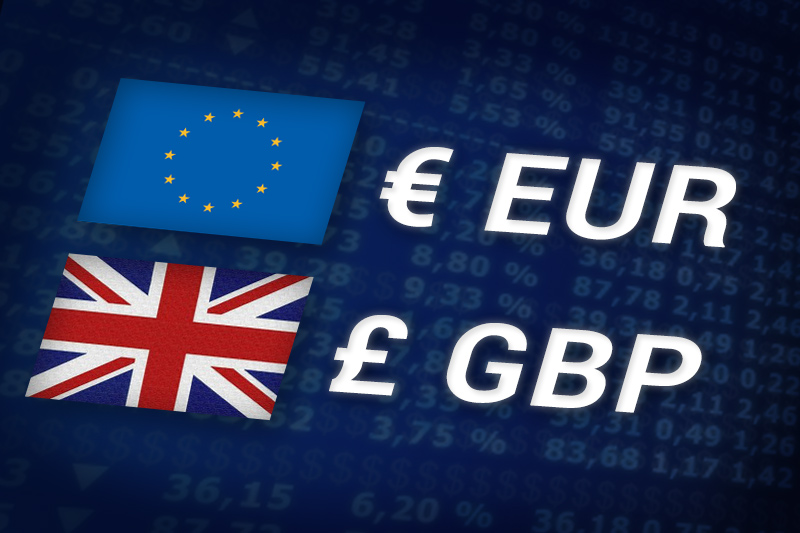Investing.com - The euro edged higher against the pound on Monday, after official data showed that retail sales in the euro zone rose unexpectedly in January, but gains looked set to remain limited amid concerns over the outcome of a Greek debt restructuring deal.
EUR/GBP hit 0.8353 during European morning trade, the session high; the pair subsequently consolidated at 0.8346, easing up 0.12%.
The pair was likely to find support at 0.8313, Friday’s low and an almost two-week low and resistance at 0.8382, the high of March 1.
The euro found support after Eurostat said retail sales rose for the first time in five months in January, increasing by a seasonally adjusted 0.3%, defying expectations for a 0.1% decline.
The report came after data showing that euro zone's services sector contracted at faster rate than initially expected in February, shrinking for the fifth time in six months.
A separate report showed that investor confidence in the euro zone improved less-than-expected this month, remaining in negative territory for the eighth consecutive month.
Sentiment on the singe currency remained fragile ahead of the March 8 deadline for bondholders to join the agreement under which they will exchange their existing Greek holdings for government bonds in a debt swap deal.
A failure to agree on the debt restructuring deal would put the country back on the brink of a sovereign debt default.
The euro was almost unchanged against the U.S. dollar, with EUR/USD inching up 0.01% to hit 1.3199, and remained sharply lower against the yen, with EUR/JPY down 0.74% to hit 107.17.
In the U.K. earlier, data showed that the service sector expanded in February, albeit at a slower than expected pace, fuelling hopes that the economy will avoid slipping into a recession in the first quarter.
The Markit/CIPS Services Purchasing Managers Index declined by 2.2 points to 53.8, from a reading of 56.0 in January. Analysts had expected a reading of 55.0 in February.
EUR/GBP hit 0.8353 during European morning trade, the session high; the pair subsequently consolidated at 0.8346, easing up 0.12%.
The pair was likely to find support at 0.8313, Friday’s low and an almost two-week low and resistance at 0.8382, the high of March 1.
The euro found support after Eurostat said retail sales rose for the first time in five months in January, increasing by a seasonally adjusted 0.3%, defying expectations for a 0.1% decline.
The report came after data showing that euro zone's services sector contracted at faster rate than initially expected in February, shrinking for the fifth time in six months.
A separate report showed that investor confidence in the euro zone improved less-than-expected this month, remaining in negative territory for the eighth consecutive month.
Sentiment on the singe currency remained fragile ahead of the March 8 deadline for bondholders to join the agreement under which they will exchange their existing Greek holdings for government bonds in a debt swap deal.
A failure to agree on the debt restructuring deal would put the country back on the brink of a sovereign debt default.
The euro was almost unchanged against the U.S. dollar, with EUR/USD inching up 0.01% to hit 1.3199, and remained sharply lower against the yen, with EUR/JPY down 0.74% to hit 107.17.
In the U.K. earlier, data showed that the service sector expanded in February, albeit at a slower than expected pace, fuelling hopes that the economy will avoid slipping into a recession in the first quarter.
The Markit/CIPS Services Purchasing Managers Index declined by 2.2 points to 53.8, from a reading of 56.0 in January. Analysts had expected a reading of 55.0 in February.
